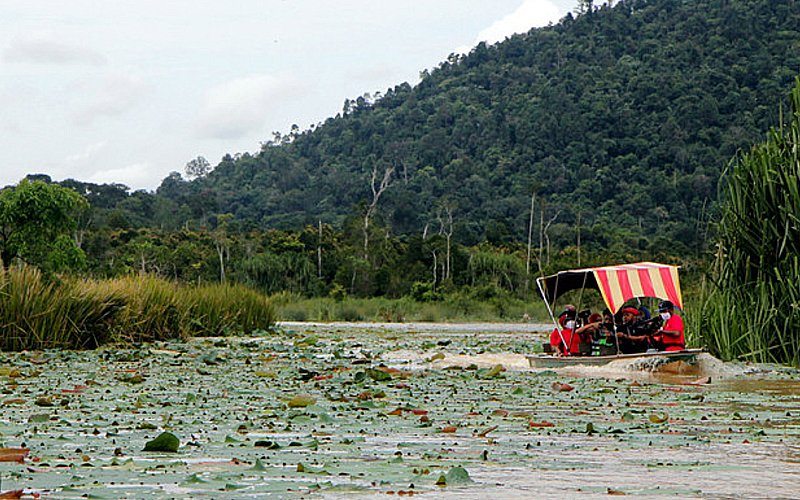MALAYSIA has two months to justify its plans to nurse Tasik Chini and its surrounding areas back to health or risk losing the freshwater lake’s biosphere reserve status.
The status, given by the United Nations Educational, Scientific and Cultural Organisation (UNESCO) in 2009, is aimed at protecting the ecosystem of the Pahang lake and its surrounding areas.
However, years of “rampant mining and logging” have “poisoned its waters” and “stripped away swathes of natural habitat”, according to South China Morning Post (SCMP).
SCMP quoted Orang Asli folk from the Jakun tribe as confirming that the “destruction” is undeniable, with murky, brown waters seen in the once pristine lake.
The report also quoted former Universiti Kebangsaan Malaysia (UKM) Tasik Chini Research Centre director Mushrifah Idris as saying environmentalists have been sounding the alarm on the lake’s “degraded” state since 2019.
“But the authorities showed little interest in doing anything until recently, after it emerged that UNESCO was considering stripping the site of its status,” she said.
Friends of the Earth Malaysia field officer Meor Razak Meor Abdul Rahman told the Hong Kong-based daily that its warnings about the lake were “repeatedly ignored” by the Pahang state government.
However, this all changed after a royal decree last year that the surrounding forest reserve in Tasik Chini should be expanded and all mining operations ceased.
“Since then, we have been officially invited to several tree replanting efforts, which have been plentiful recently,” Meor Razak said.
According to SCMP, Malaysian authorities have been requested to submit a detailed plan for how it plans to nurse Tasik Chini back to health by Sept 30.
Contradiction
However, SCMP’s report on the possible reserve status revocation contradicts a similar article by Malaysiakini.
Last Monday (July 24), Malaysiakini reported that Tasik Chini no longer meets the criteria to be part of the World Network of Biosphere Reserves (WNBR), following UNESCO’s first periodical review of the lake.
The review, done every 10 years, attributed this to the reopening of mines in surrounding areas, which resulted in “catastrophic environmental impacts” such as sedimentation, water quality deterioration and river bank degradation.
“Environmental damages” were also caused by rubber plantations and forest areas being turned into oil palm plantations, it said.
“The rising trend in tourists visiting and fishing in the natural lake has reversed due to deforestation,” the periodical review report added.
Malaysian authorities must now provide UNESCO with an updated zonation and management plan of Tasik Chini’s biosphere reserve by the end of September.
However, Malaysiakini’s report said Tasik Chini’s status as a biosphere reserve will not be revoked anytime soon.
“The Tasik Chini biosphere reserve is not facing such risk (of having its reserve status revoked) at this stage,” it quoted programme specialists from UNESCO’s Man and Biosphere (MAB) team as saying.
The spokespersons said it is a “normal process” during a periodic review to request additional information from local authorities. – July 31, 2022
Main photo credit: FMT









